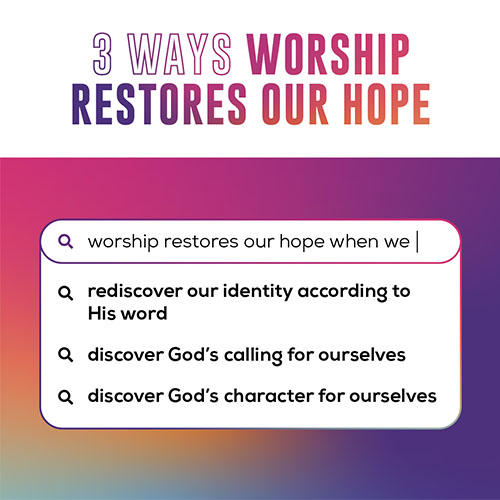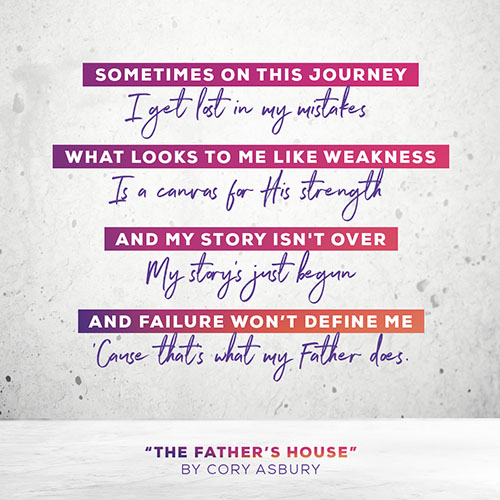
Have you ever found yourself in a pit?
You know, one of those places where things seem dark, the walls seem tall, and you’re not sure of the way out?
Best-selling author and well-known Bible study teacher, Beth Moore, describes herself as a “former pit-dweller” in her book Get Out of That Pit! In the book, Moore describes three different kinds of pits we get into in life - the pits we jump into, the pits we slip into accidentally, and the pits we get thrown into.
The pits we jump into? Those could include...
- Debt from purchasing items that were “wants,” not needs.
- A relationship we know doesn’t honor God but lessens our insecurity.
- A cynical attitude because of our refusal to deal with deep wounds.
The pits we slip into accidentally? Those could include...
- Social media addiction.
- Binging an entire TV show when you said you were only going to watch one episode.
- Repeated viewing of pornography.
The pits we get thrown into? Those could include...
- Losing a job.
- Getting diagnosed with COVID-19.
- The sudden death of a family member.
- Betrayal by a friend.
I started 2020 in a pit of shame. I was battling intense shame from learning about two moments where I failed to show up as a friend for someone I cared about deeply. I jumped into this pit as a result of my inability to stop beating myself up and embrace the forgiveness they were offering me.
By the middle of 2020, I had gotten out of the shame pit only to fall into another pit - fear. Several crises left me wondering how I would respond if the worst outcome happened in each situation. The fear of the worst kept me from living at my best.
But, we’re not the first people to find ourselves in a pit.
The people of Israel found themselves in one in 2 Chronicles 33. King Manasseh had built pagan altars in the Temple of the Lord, and he sacrificed his own sons to pagan deities. Manasseh was very evil, but his son Amon was even worse. Amon’s own officials assassinated him in the palace, only to then execute themselves. After this, they turned to Amon’s eight-year-old son, Josiah, making him king.
The nation of Judah was in a bad place. They had little hope of God’s blessing, little awareness of God’s presence, and a few examples of how to live righteously.
2 Chronicles 34 details how Josiah began to reform his father and grandfather’s evil actions. He began by tearing down altars to false gods and wholeheartedly seeking the Lord. He also charged the priests to begin repairing the temple. During those repairs, Hilkiah, the priest, discovered the “Book of the Law.” That discovery, along with Josiah’s faithfulness to the Lord, began to lead the nation out of the pit.

How did they get out of their pit?
They re-discovered their identity; who they were according to God’s word. They discovered their calling, or what their role was to be in the world. They remembered God’s character - who had been to their ancestors and who promised to be for them too. All of this led to a powerful season of worship, summarized in 2 Chronicles 34:33.
“So Josiah removed all detestable idols from the entire land of Israel and required everyone to worship the Lord their God. And throughout the rest of his lifetime, they did not turn away from the Lord, the God of their ancestors.”
Their shift from a fractured people who lacked hope to a people who were united in confidence and unity was complete. That same transition is possible for us!
In a time where it was hard to be hopeful, worship restored God’s people to confidence and unity. The same thing can happen to us.
Re-discovering their identity led to worship. They confessed how far they’d gotten off the path and then trusted that God could restore them to the path. That experience brought confidence and unity where before there had just been despair and disillusionment.
Discovering God’s calling for them led to worship. The re-discovery of the Law both reminded them what to do and who they were. Activity and identity were connected in the Old Testament, and they’re connected today. To be united, we have to know who we are. Then shared activity can lead to a greater sense of unity.
Discovering God’s character for themselves led to worship. Realizing the story of God’s faithfulness to their ancestors, amidst challenges of famine, slavery, and their own sin, reminded them that God really did love them with faithful love.
In his song, “Father’s House,” Cory Asbury writes some powerful lyrics about God’s character:

That’s what our Father does. He writes a story that is much bigger than our failures. When we unite in worship, He meets us in our discouragement and hopelessness, transforming it into confidence and hope.
Our Father met me in my pit of fear. In one instance, the worst outcome did happen - and by His grace, I’m still here! The worst happened, and God still gave me his best. That’s why I’m still worshiping Him and why I want to invite you to worship with me!
Scott Savage is a pastor and a writer who believes he has the best last name ever. He leads Cornerstone Church in Prescott, Arizona. Scott is married to Dani and they are the parents of three “little savages.” He is the creator of the Free to Forgive course and you can read more of his writing at scottsavagelive.com





